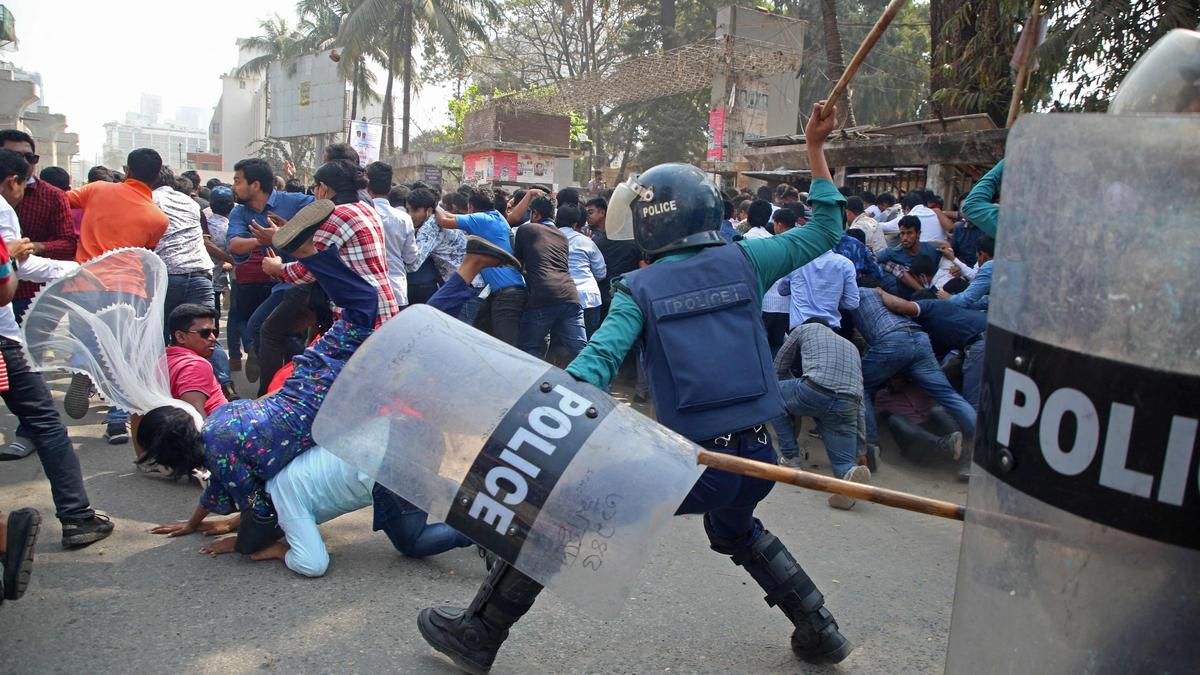
With Hasina gone, BNP is torn by internal clashes Premium
The Hindu
Lablu Mia, a BNP leader, was killed in internal clashes, reflecting growing violence within the party in Bangladesh.
Lablu Mia, a 50-year-old local leader of the Bangladesh Nationalist Party (BNP), was known as a devoted activist in Badarganj upazila of Rangpur district. But on April 5, his loyalty to the party meant nothing when rival BNP factions turned on each other in a vicious clash over control of a business near the upazila central Shaheed Minar. Stabbed repeatedly in the clashes, Mia became the latest casualty in a growing wave of internal clash tearing through the BNP.
The clash, which left at least 15 injured — nine critically — spiralled so out of control that police and army personnel had to be deployed to restore order. The BNP swiftly suspended eight of its leaders, including a former MP, in connection with the incident, but the damage was already done.
Mia’s death is not an isolated incident. Since the fall of Sheikh Hasina’s government on August 5, 2024, the BNP, arguably the most dominant political force in the country, has been torn by internal divisions. With the Awami League’s influence diminished, BNP factions are now frequently locked in clashes for influence.
Just two days after Mia’s killing, another deadly clash erupted in Raipur Upazila of Lakshmipur district, between rival BNP factions. Two activists were killed, and 15 others were hospitalised with stab wounds.
According to the Human Rights Support Society (HRSS), a rights organisation in Bangladesh, at least 23 people were killed and 733 more injured in over 97 incidents of political violence across the country in March. Of the deaths, 17 occurred in 64 clashes between rival factions of the BNP. These incidents left 502 others injured.
The rights body said that most of the violence was driven by efforts to establish dominance, political vendetta, extortion, and the occupation of various facilities. Although the number of political violence incidents slightly decreased last month, from 104 in February — the number of deaths more than doubled from nine. Of them, five died as result of infighting between BNP factions.
January also witnessed alarming levels of political violence, with at least 15 people killed and 987 injured in 124 incidents. The bloodshed predominantly stemmed from internal party conflicts, particularly within BNP, which accounted for 68 violent incidents resulting in 677 injuries and five deaths. However, inter-party clashes between BNP and Awami League activists turned deadly in 22 instances, leaving 106 wounded and four dead, while three confrontations between BNP and Jamaat-e-Islami supporters saw 60 casualties and one fatality.

 Run 3 Space | Play Space Running Game
Run 3 Space | Play Space Running Game Traffic Jam 3D | Online Racing Game
Traffic Jam 3D | Online Racing Game Duck Hunt | Play Old Classic Game
Duck Hunt | Play Old Classic Game











